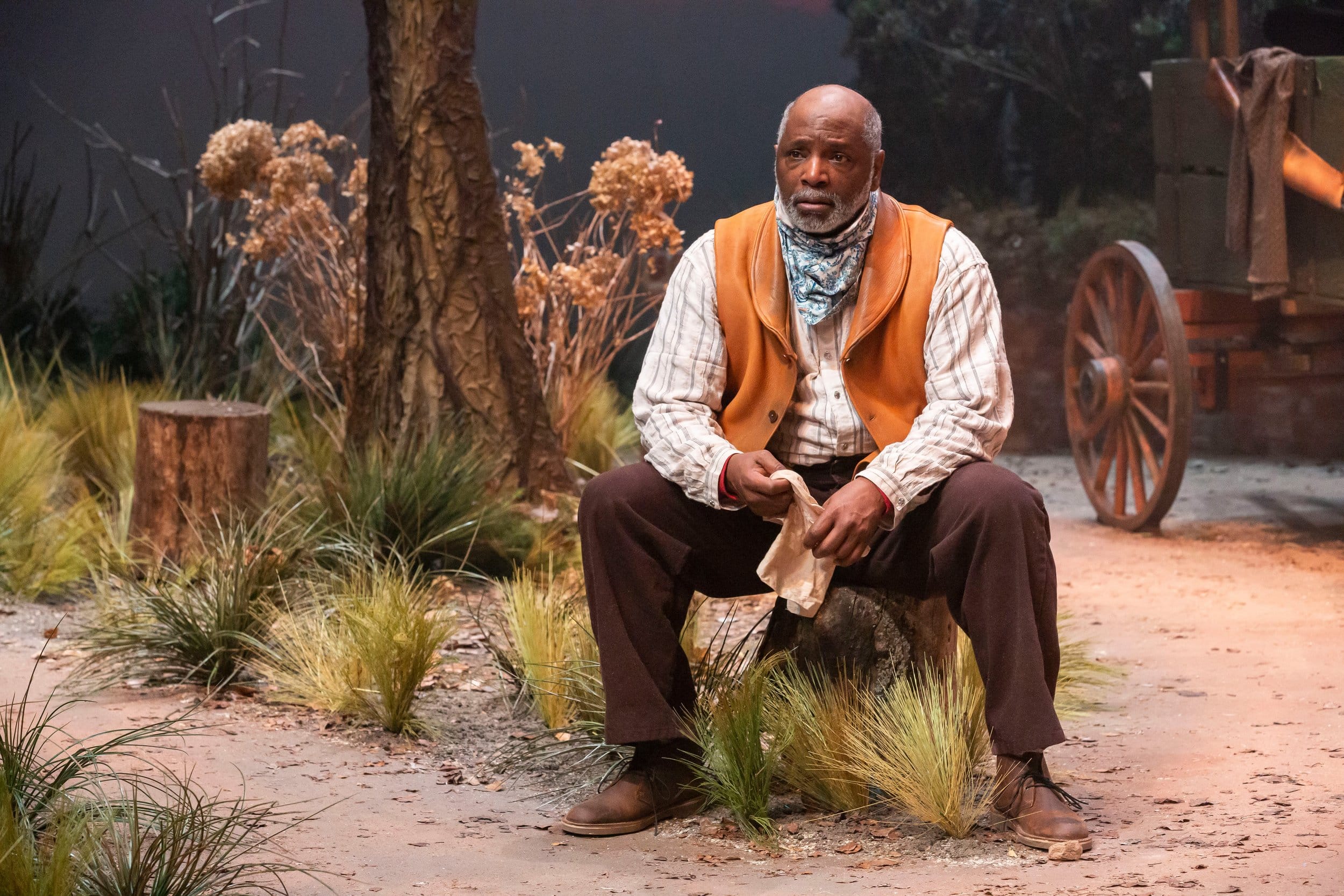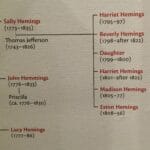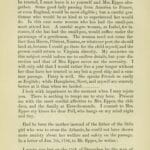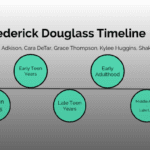Get ready to journey through history as we explore the captivating life of Madison Hemings, a man whose story intertwines with the very foundations of America. Born at Monticello, the grand estate of Thomas Jefferson, author of the Declaration of Independence, Hemings’ story sheds light on the complex realities of slavery and the enduring search for truth and justice. Prepare to be captivated by Madison’s own words as we delve into his remarkable life, a life that challenged the narratives of his time and continues to shape our understanding of America’s past.
A Voice from Monticello
Madison Hemings’ story is not merely a footnote in the annals of history; it’s a powerful testament to the resilience of the human spirit in the face of immense adversity. Born into slavery at Monticello, Hemings’ life offers a unique perspective on the contradictions at the heart of America’s founding ideals.
What makes Hemings’ story so compelling is his own voice. He left behind a rare treasure: his own memoir, offering a glimpse into a world often hidden from view. Hemings’ words allow us to step beyond the grand facade of Monticello and witness the daily lives, relationships, and struggles of the enslaved community who called it home. His account challenges the traditional narratives of plantation life, revealing the strength, dignity, and humanity of those who lived and labored under the shadow of slavery.
Jefferson’s Legacy: A Complicated Truth
The relationship between Thomas Jefferson and Sally Hemings, Madison’s mother, has been a subject of intense scrutiny and debate for centuries. While historical accounts offer glimpses into their connection, it is Madison Hemings’ own words that provide perhaps the most powerful testimony. He firmly believed that Jefferson was his father, a claim supported by DNA evidence that emerged in the late 20th century.
This revelation compels us to confront the complicated legacy of Thomas Jefferson. The man who penned the immortal words “all men are created equal” was also a slave owner, entangled in a relationship with a woman he held in bondage. Madison Hemings’ story forces us to grapple with this uncomfortable truth, urging a deeper understanding of the complexities of power, race, and consent during that era.
A Life Beyond Monticello: Finding Freedom in Ohio
Leaving Monticello marked a pivotal turning point in Madison Hemings’ life. After being granted his freedom upon Jefferson’s death, he embarked on a new chapter in Ohio, a state where slavery was outlawed. There, he built a life defined by resilience and determination.
Hemings honed his carpentry skills, establishing himself as a respected craftsman and farmer. His journey embodies the indomitable spirit of countless individuals who, after enduring the horrors of slavery, sought to forge a new path for themselves and their families. Hemings’ story is a testament to the power of the human spirit to overcome adversity and strive for a better future.
Uncovering Hidden Truths: The Importance of Hemings’ Story
For many years, Madison Hemings’ narrative was overshadowed by the towering legacy of Thomas Jefferson. Today, however, his voice is finally being heard, offering invaluable insights into a critical period in American history. His story sheds light on the lives of enslaved people, challenging us to confront the enduring legacy of slavery and its impact on our nation’s past and present.
Hemings’ memoir serves as a stark reminder that history is not merely a collection of dates and events. It is, above all, a tapestry woven from the experiences of real people. By listening to voices like Madison Hemings’ and engaging with their stories, we gain a richer, more nuanced understanding of our shared past. His story is an invitation to delve deeper, to challenge assumptions, and to ensure that all voices are heard as we strive to create a more just and equitable future.
What Happened to Madison Hemings?
Born into slavery at Monticello, Virginia, on January 19, 1805, Madison Hemings’ life was interwoven with the complex realities of the antebellum South. His journey took him from the bustling plantation of Thomas Jefferson to the burgeoning free state of Ohio, navigating questions of family, identity, and freedom along the way.
Growing up at Monticello, Hemings experienced the harsh realities of plantation life firsthand. He learned the trade of woodworking from his uncle, John Hemings, a highly skilled enslaved artisan. As a young man, likely witnessed the complexities of the relationship between his mother, Sally Hemings, and Thomas Jefferson.
In 1826, upon Jefferson’s death, Hemings was granted his freedom, a stipulation outlined in Jefferson’s will. This newfound liberty led him to Ohio, joined by his mother, Sally, and brother, Eston. It was in Ohio, in 1831, that he married Mary Hughes McCoy, a free woman of mixed race. Hemings, utilizing his carpentry skills, supported his family and added farming to his repertoire.
Years later, in 1873, Hemings provided a rare glimpse into his life at Monticello through an interview published in the Pike County Republican. This firsthand account has been invaluable to historians, providing an intimate perspective on life at Monticello and the dynamics between the enslaved community and their enslavers.
Hemings’ story, marked by resilience and determination, showcases an individual navigating a society grappling with the legacy of slavery and the complexities of race relations. His life stands as a testament to the human capacity for adaptation and the pursuit of self-determination despite overwhelming obstacles.
Are There Any Living Descendants of Sally Hemings?
The legacy of Sally Hemings extends beyond the annals of history, reaching into the present day through her living descendants. Decades of meticulous research, combined with DNA evidence, has confirmed a genetic link between Hemings’ descendants and the male lineage of Thomas Jefferson, providing compelling support to the historical accounts suggesting Jefferson fathered Sally Hemings’ children.
This connection has been acknowledged by some descendants from both sides of the family, painting a complex picture of a family tree intertwined with the legacies of slavery and power. Their openness about their shared ancestry offers a poignant reminder of the enduring impact of the past on the present, prompting important conversations about race, identity, and reconciliation in America.
How Many Children Did Thomas Jefferson Have?
While Thomas Jefferson’s legacy is often associated with his role as a Founding Father and the authorship of the Declaration of Independence, a closer examination reveals a more complicated history. Historical records and DNA evidence suggest that in addition to his children with his wife, Martha Wayles Skelton Jefferson, he fathered six children with Sally Hemings, a woman he enslaved.
Madison Hemings, born at Monticello in 1805, was one of these six children. DNA analysis strongly indicates that Jefferson was indeed the father of all of Sally Hemings’ children. This revelation, while contested by some, has sparked crucial conversations about the complexities of power, race, and consent during that era, prompting a reassessment of Jefferson’s legacy within a broader historical context.
The story of Madison Hemings and his siblings serves as a powerful reminder of the hypocrisy inherent in a nation founded on principles of liberty while simultaneously upholding the brutal institution of slavery. It underscores the necessity of confronting uncomfortable truths in our history to foster a more accurate and inclusive understanding of the past. By acknowledging the full scope of Jefferson’s life, including his relationship with Sally Hemings and their children, we gain a more nuanced perspective on the complexities of this pivotal moment in American history.
internal links:
- Mamie Lincoln Isham was a promising young woman who suddenly found herself thrust into the duties of First Lady.
- Melody Brynner had a difficult upbringing, but she eventually found her way to success in the entertainment industry.
- SYBAU See You Baby Meaning: Gen Z Slang Evolves - July 1, 2025
- Unlock Your Inner Youth: Lifestyle Secrets for a Vibrant Life - July 1, 2025
- Decode SYBAU Meaning: Gen Z Slang Explained - July 1, 2025






